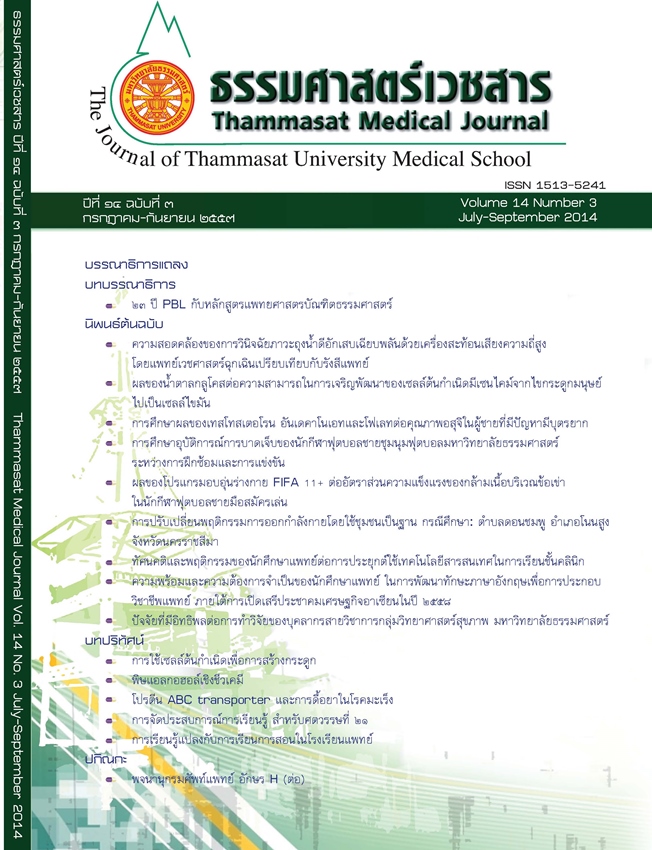Adipogenic differentiation capacity of human bone marrow-derived mesenchymal stem cells in high glucose condition
Keywords:
Human bone marrow-derived mesenchymal stem cell, Adipocyte, DiabetesAbstract
Introduction: Type 2 diabetes is a disease in which the level of blood glucose is abnormally high due to a decreased responsiveness of patient ,s own cells to insulin. Several previous studies have demonstrated that an increased number of adipocytes in adipose tissue is significantly correlated with an increased risk of developing diabetes and cardiovascular diseases. It is known that significant amount of our adipocytes are derived from mesenchymal stem cells (MSCs) presented in our bone marrow and adipose tissues. However, the molecular mechanism regulating the differentiation of MSCs toward adipocytes as well as an influence of microenvironment, especially an elevated level of blood glucose, on the adipogenic differentiation process of MSCs is still poorly characterized.
Method: In the present study, we investigated the effects of high glucose on the adipogenic differentiation capacity and the expression levels of several adipogenic genes of human bone marrow-derived mesenchymal stem cells (BM-hMSCs) in comparison to BM-hMSCs which were cultured in normal glucose condition.
Results: Although high glucose condition did not have any discernable effect on the surface marker expression profile of BM-hMSCs. The numbers of adipocytes generated from BM-hMSCs in high glucose condition were significantly greater than those generated from BM-hMSCs cultured in normal glucose condition. Moreover, the expression level of adipogenic gene Lipoprotein lipase in BM-hMSCs was also significantly up-regulated when the cells were cultured in high glucose condition.
Discussion and conclusion: An elevated level of blood glucose in diabetic patients could up-regulate the expression level of adipogenic gene Lipoprotein lipase and subsequently enhance the differentiation of BM-hMSCs toward adipocyte-lineage. The increased number of hMSC-derived adipocytes might increase the level of insulin resistant in diabetic patients, and therefore compromise the outcome of their treatment. We believe that the knowledge gained from this study will increase our understanding on the mechanisms underlying the effects of high glucose on adipogenic differentiation of hMSCs and might lead to an improvement in the treatments of both diabetes and metabolic syndrome in the future.
Key words: Human bone marrow-derived mesenchymal stem cell, Adipocyte, Diabetes



